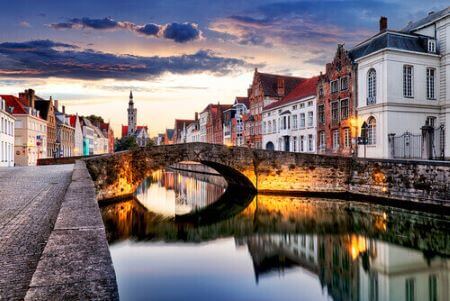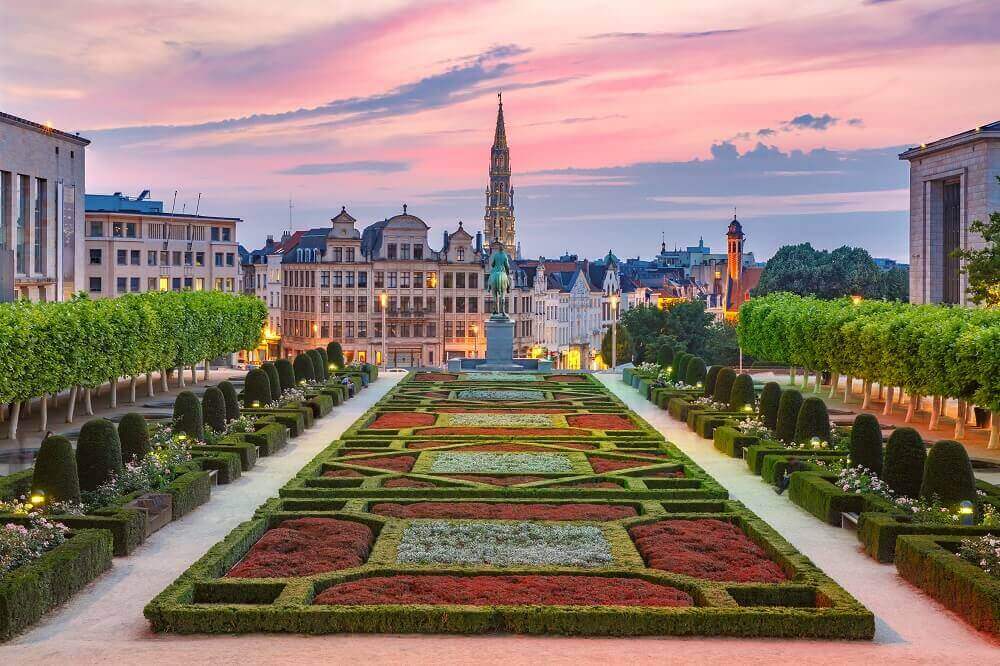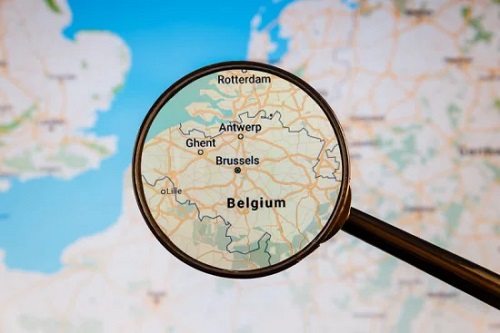

Belgium is a fascinating country, known not only for its delicious chocolates and famous beer, but also for its rich variety of languages. Despite its small size, Belgium is home to a remarkable diversity in languages that reflect well its complex history and cultural richness. For anyone curious about what language is the official language in Belgium and what other languages are spoken there, this article takes you on a journey through the country’s linguistic landscape, highlighting the unique aspects of the three official languages Dutch, French and German.
Belgium’s Multilingual Identity
Belgium stands out in Europe as a true multilingual nation. Nestled between France, Germany, and the Netherlands, it has absorbed and adapted the languages and cultures of its neighbors. The languages spoken in Belgium are not only tools of communication but also a vibrant part of its national identity. Each language has its own region where it predominates, and together they weave the story of a country proud of its linguistic diversity.
Dominant Language Regions
Flanders and the Dutch Language
In the northern part of Belgium lies Flanders, where Dutch is the dominant language. Locally referred to as Flemish, this variant of Dutch is the primary language for about 60% of Belgians. The people of Flanders are proud of their linguistic heritage, which includes several distinct dialects, such as West Flemish and East Flemish. These dialects give the region its unique flavor, differentiating Belgian Dutch from the Dutch spoken in the Netherlands. Cities like Antwerp, Ghent, and Bruges are centers of Flemish culture, drawing tourists who are eager to experience its historic sites and vibrant language.

Wallonia’s French Community

To the south of Belgium lies Wallonia, a region where residents predominantly speak French, and accounts for about 40% of the Belgian population. The Walloon region is steeped in history and culture, with its Belgian French sharing similarities with the French spoken in France. However, there are subtle differences that give Walloon French its own identity, influenced by regional dialects and cultural nuances. In Wallonia, French is more than a language; it is a way of life, celebrated in its literature, cuisine, and even the arts. The region’s cities, such as Liège and Namur, are bustling centers of French-speaking culture.
The German-Speaking Community
Belgium’s German-speaking community may be small, but it plays a significant role in the country’s rich linguistic tapestry. Located in the eastern region near the German border, about 70,000 people speak German as their native language. This area joined Belgium after World War I, and the German spoken here closely resembles standard German, allowing seamless communication for those arriving there already speaking German. Although German is a minority language in Belgium, it is one of the country’s three official languages, reflecting Belgium’s dedication to linguistic equality. The German-speaking area is celebrated for its scenic landscapes and historical significance, contributing a unique dimension to Belgium’s cultural mosaic.

The Brussels-Capital Region
The Brussels-Capital Region is the heart of Belgium and a shining example of how different languages can coexist. Officially bilingual, Brussels is a place where both Dutch and French are official languages. As the capital of the European Union, Brussels attracts people from all over the world, making it a cosmopolitan city with a dynamic cultural scene. In Brussels, language skills are a practical necessity, and many residents are fluent in both languages, along with many also speaking English. The city’s bilingual nature reflects its role as a hub of international diplomacy and business, where diversity is celebrated and embraced.
The Role of Minority and Immigrant Languages
Belgium’s linguistic diversity extends beyond its official languages, encompassing a wide array of minority languages and immigrant languages. The country’s multicultural society includes significant communities who speak languages, like Italian, Arabic, and Turkish. These other languages contribute to Belgium’s rich tapestry of cultures, influencing everything from food to music. The presence of these languages is a testament to Belgium’s openness to global influences and its commitment to fostering a society where diversity is not only accepted but celebrated. The vibrant immigrant communities in cities like Brussels and Antwerp showcase the dynamic interplay of the languages that characterize modern Belgium.
Language Education and Skills
Belgium places a strong emphasis on language learning, recognizing the importance of multilingualism in an interconnected world. From an early age, Belgian students are encouraged to learn multiple languages, with English often being a second language. This focus on language skills not only enhances communication abilities but also prepares Belgians for global opportunities in business and travel. The education system’s commitment to fostering multilingualism is a key reason why Belgians are known for their impressive linguistic abilities, often speaking several languages fluently.
Understanding Flemish Dialects
One of the most intriguing aspects of Belgium’s linguistic landscape is the variety of Flemish dialects spoken in Flanders. While these dialects are rooted in standard Dutch, they have evolved unique characteristics in terms of pronunciation, vocabulary, and expressions. West Flemish and East Flemish are among the most well-known dialects, offering a fascinating glimpse into the region’s linguistic evolution. These dialects reflect the rich history of Flanders and contribute to the vibrant culture of the region. For language enthusiasts, exploring these dialects is a journey into the heart of Belgian identity.

Historical and Political Influences
The linguistic landscape of Belgium has been shaped by its history and politics. Throughout history, language has played a central role in Belgium’s political and cultural dynamics. Historical events, such as World War I and II, have left their mark on Belgium’s linguistic communities, influencing the way languages are perceived and used today. Political decisions and cultural conflicts continue to shape the use of language in Belgium, reflecting the complex interplay between identity, power, and culture. These influences are evident in the way language is integrated into daily life and governance, showcasing Belgium’s ability to navigate its diverse linguistic heritage.
In conclusion
Finally, the languages spoken in Belgium are a testament to the country’s rich cultural identity and complex history. From the dominant languages of Dutch and French to the smaller yet significant presence of spoken German, Belgium’s linguistic diversity offers a unique perspective on multilingualism in a modern society. Whether you’re a language enthusiast or simply curious about this intriguing nation, exploring Belgium’s languages provides a deeper understanding of its vibrant cultural tapestry.
Enhance Your Language Experience with Skrivanek
Understanding the rich linguistic diversity of Belgium is just the first step in bridging cultures and communicating effectively. Whether you’re navigating the multilingual business landscape of Brussels or exploring the cultural richness of Flanders and Wallonia, having expert language support can make all the difference. Skrivanek is your trusted partner in mastering these linguistic challenges. With a comprehensive range of translation and localization services, Skrivanek helps businesses and individuals communicate across languages and cultures with ease and precision. From document translation and interpretation to post-editing and localization services, our experienced team is dedicated to providing high-quality, customized solutions tailored to your specific needs. Embrace the linguistic diversity of Belgium and unlock new opportunities with Skrivanek by your side.

